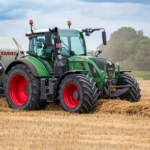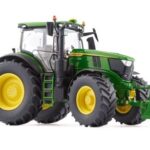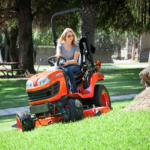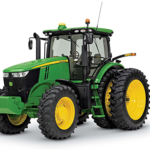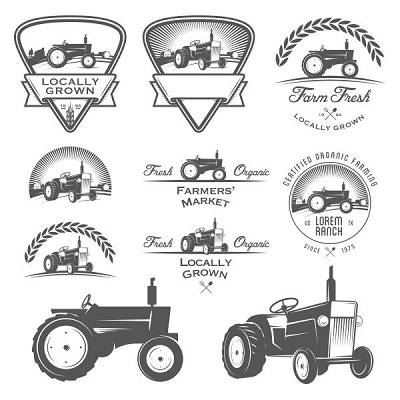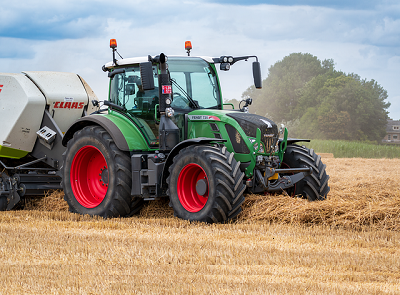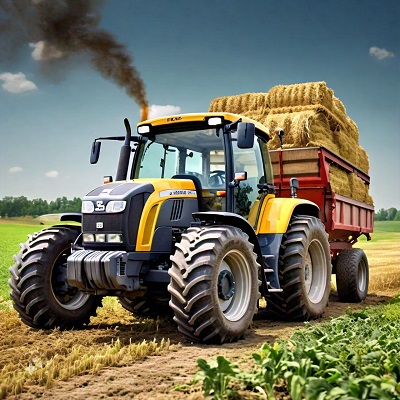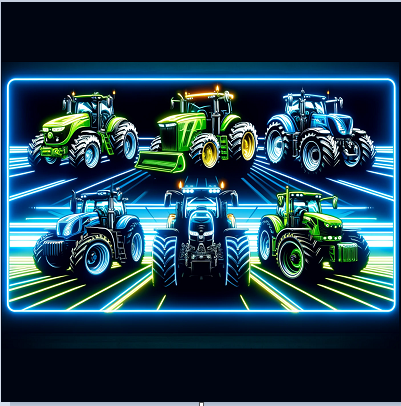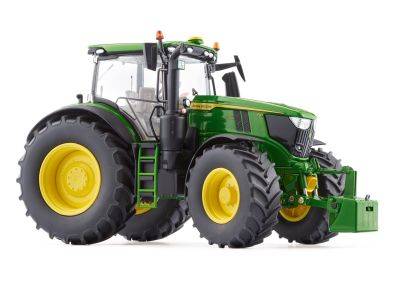A Comprehensive Guide for Modern Agriculture
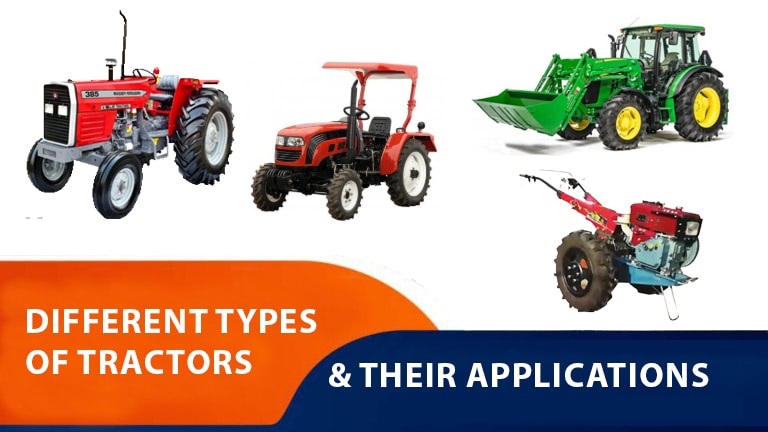
Tractors are the workhorses of agriculture, fundamental for most farming errands. With mechanical headways, tractors have advanced into particular machines intended to upgrade efficiency and proficiency in different farming exercises. This article dives into the various sorts of tractors, their extraordinary highlights, and the particular assignments they are the most appropriate for. Whether you’re a rancher hoping to put resources into new hardware or essentially inquisitive about horticultural machinery, this guide will give you an intensive comprehension of the different universe of tractors.
Utility Tractors:
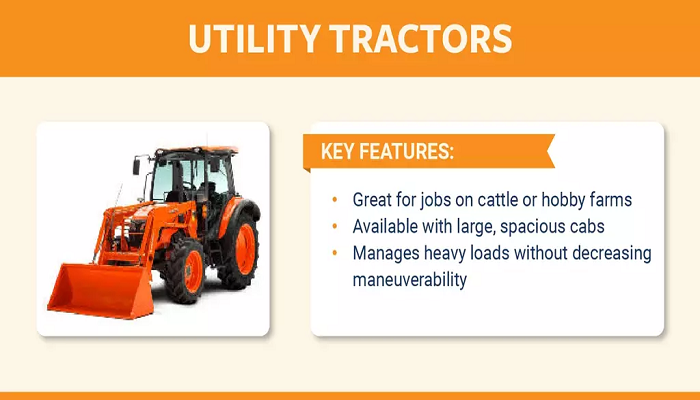
Utility tractors are the most adaptable kind of tractors, generally utilized on small to medium-sized ranches. They are intended for various undertakings, including furrowing, nerve-racking, pulling, and cutting. Utility tractors ordinarily range from 40 to 100 horsepower, making them reasonable for general ranch work.
Key Features:
- Moderate horsepower range (40-100 HP)
- Suitable for various attachments like loaders, backhoes, and mowers
- Ideal for small to medium-sized farms
- Used for plowing, tilling, hauling, and other farm tasks
Popular Models:
- John Deere 5055E
- Kubota L3301
- New Holland Workmaster 55
Row Crop Tractors:
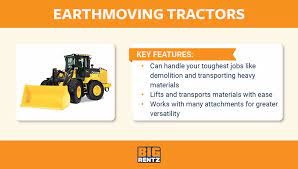
Row crop tractors are specifically designed for row crop farming. They have high ground clearance and adjustable wheel spacing, allowing them to navigate through crop rows without damaging the plants. These tractors are equipped with features to handle precise planting, cultivating, and harvesting.
Key Features:
- High ground clearance
- Adjustable wheel spacing
- Precision farming capabilities
- Suitable for planting, cultivating, and harvesting row crops
Popular Models:
- Case IH Magnum 340
- John Deere 8R Series
- Massey Ferguson 7700S
Orchard Tractors:
Orchard tractors are custom-fitted for use in orchards and grape plantations. They are conservative and thin to fit between close columns of trees and plants, limiting the gamble of harm to crops. These tractors frequently accompany specific connections for pruning, showering, and collecting.
Key Features:
- Compact and narrow design
- Specialized attachments for pruning, spraying, and harvesting
- Low-profile to navigate under tree canopies
- High maneuverability in tight spaces
Popular Models:
- New Holland T4.110F
- Kubota M5N-091
- John Deere 5GN Series
Compact Tractors:
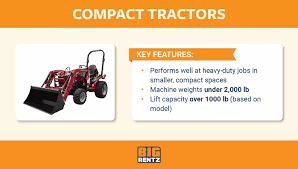
Reduced tractors, otherwise called sub-conservative tractors, are more modest than utility tractors however sneak up all of a sudden for their size. They are ideal for undertakings in more modest spaces, like nurseries, little homesteads, and local locations. Minimal tractors are frequently utilized for arranging, cutting, and light-obligation ranch work.
Key Features:
- Small and maneuverable
- Horsepower typically under 40 HP
- Suitable for light-duty tasks and smaller areas
- Compatible with various attachments like loaders and backhoes
Popular Models:
- John Deere 1025R
- Kubota BX1880
- Massey Ferguson GC1700 Series
Industrial Tractors:
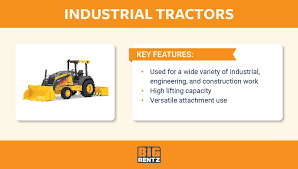
Industrial tractors, also known as construction tractors, are built for heavy-duty tasks often found in construction sites and large-scale agricultural operations. These tractors are robust, with powerful engines and durable frames to handle the most demanding tasks, such as lifting, digging, and loading.
Key Features:
- Heavy-duty construction
- Powerful engines (often over 100 HP)
- Equipped with loaders, backhoes, and other industrial attachments
- Used in construction, mining, and large-scale farming
Popular Models:
- Caterpillar D7R
- John Deere 210L
- Case 570N EP
Garden Tractors:
Garden tractors are intended for private use, especially for keeping up with gardens and yards. They are more modest and less strong than reduced tractors yet are ideally suited for assignments like cutting, plowing, and light pulling. Garden tractors are easy to understand and frequently accompany connections for different gardening needs.
Key Features:
- Small size and easy to operate
- Horsepower typically under 25 HP
- Ideal for lawn mowing, tilling, and light hauling
- Compatible with gardening attachments
Popular Models:
- Husqvarna TS 348XD
- John Deere X350
- Cub Cadet XT1 Enduro Series
Implement Carrier Tractors:
Implement carrier tractors are intended to convey and work different homestead implements. These tractors are flexible and can be utilized for planting, developing, splashing, and collecting. Implement carrier tractors are especially valuable in huge-scope farming where different tasks are directed at the same time carrier tractors are particularly useful in large-scale farming where multiple operations are conducted simultaneously.
Key Features:
- Versatile and multi-functional
- Designed to carry and operate various implements
- Suitable for large-scale farming
- Used for planting, cultivating, spraying, and harvesting
Popular Models:
- Mahindra 575 DI XP Plus
- Massey Ferguson 1035 DI
- Sonalika DI 750 III RX
Track Tractors:
Track tractors, otherwise called crawler tractors, use tracks rather than wheels, giving better footing and security on delicate or lopsided landscapes. These tractors are great for errands that require huge power and security, like weighty furrowing, plowing, and enormous scope field planning.
Key Features:
- Tracks instead of wheels for better traction
- High stability on soft or uneven terrain
- Suitable for heavy-duty tasks like plowing and tilling
- Used in large-scale field preparation
Popular Models:
- Caterpillar Challenger MT700 Series
- John Deere 9RX Series
- Case IH Steiger Quadtrac
Two-Wheel Drive (2WD) Tractors:
Two-wheel drive (2WD) tractors are the most well-known sort of tractor, appropriate for general farming errands. They are ordinarily more affordable and simpler to keep up with than four-wheel drive tractors. In any case, they might battle in sloppy or unpleasant territory contrasted with their all-wheel-drive partners.
Key Features:
- Drive power to two rear wheels
- Suitable for general farming tasks
- Less expensive and easier to maintain
- May struggle in rough terrain
Popular Models:
- John Deere 5075E
- Massey Ferguson 241 DI
- Kubota MU5501
Four-Wheel Drive (4WD) Tractors:
Four-wheel drive tractors give capacity to every one of the four wheels, offering better foothold and security, particularly on harsh or lopsided landscapes. These tractors are great for rock-solid assignments and are regularly utilized in huge ranches and testing conditions.
Key Features:
- Drive power to all four wheels
- Superior traction and stability
- Suitable for heavy-duty tasks
- Ideal for large farms and rough terrain
Popular Types of Tractors:
- John Deere 8370R
- Case IH Magnum 380 CVT
- New Holland T8.435
Autonomous Tractors:
Independent tractors address the fate of farming, utilizing cutting-edge innovation to work without a driver. These tractors are outfitted with GPS, sensors, and AI to perform errands like planting, showering, and reaping with accuracy and effectiveness.
Key Features:
- Operate without a driver
- Equipped with GPS, sensors, and AI
- High precision and efficiency
- Suitable for modern, tech-driven farming
Popular Models:
- John Deere Autonomous Tractor Concept
- Case IH Autonomous Concept Vehicle (ACV)
- Kubota Autonomous Tractor
Choosing the Right Tractor
You have various Types of Tractors while picking a tractor, taking into account the particular requirements of your homestead or operation is pivotal. Factors, for example, the size of your homestead, the sort of harvests you develop, and the assignments you want to perform will impact your choice. Here are a few hints to assist you with picking the right tractor:
- Survey Your Necessities: Distinguish the undertakings you want the tractor for, like furrowing, planting, cutting, or pulling. Various undertakings might require various sorts of tractors.
- Think about the Size of Your Ranch: More modest homesteads might profit from reduced or utility tractors, while bigger homesteads could require all the more remarkable line yield or four-wheel drive tractors.
- Assess Terrain and Soil Conditions: If your ranch has lopsided or sloppy terrain, a four-wheel drive or track tractor may be more reasonable.
- Financial plan: Decide your spending plan and consider both the underlying expense and long-haul maintenance costs.
- Future Extension: Ponder your future requirements. If you intend to extend your ranch, putting resources into a more flexible tractor may be gainful.
Conclusion on Types of Tractors
Tractors are a vital piece of current agriculture, and picking the right kind of tractor can essentially influence the effectiveness and efficiency of your farming activities. From flexible utility tractors to cutting-edge independent models, there is a tractor to meet each horticultural need. By understanding the remarkable elements and abilities of each kind of tractor, ranchers can settle on informed choices that best suit their particular prerequisites.
Putting resources into the right tractor improves ranch efficiency as well as guarantees that farming errands are finished effortlessly and accuracy. As innovation keeps on developing, the fate of tractors guarantees significantly more advancements that will additionally change the rural business. Whether you are a carefully prepared rancher or simply beginning, the right tractor can have a significant effect in accomplishing your farming objectives.
